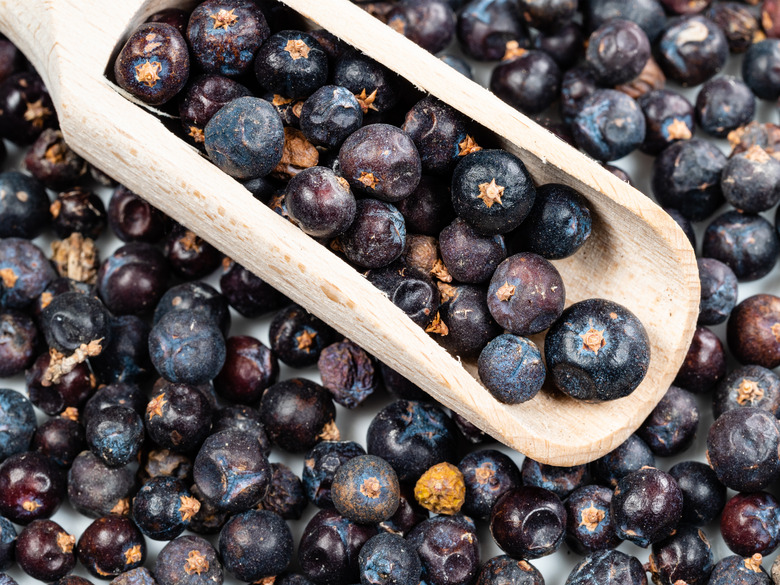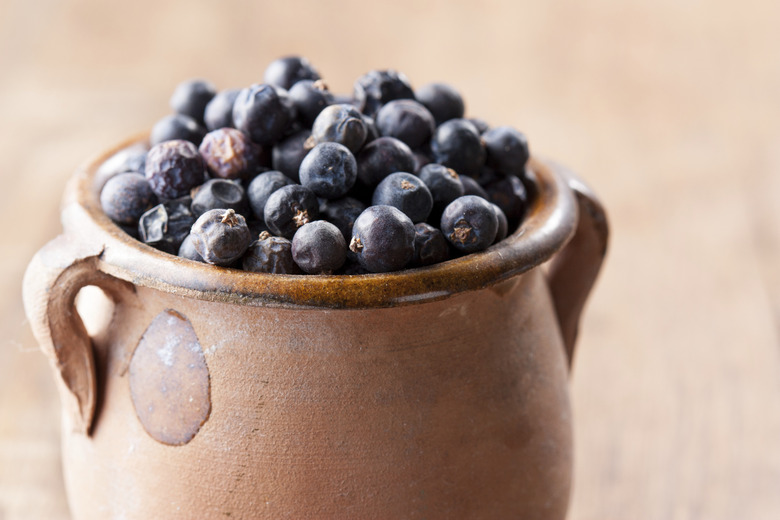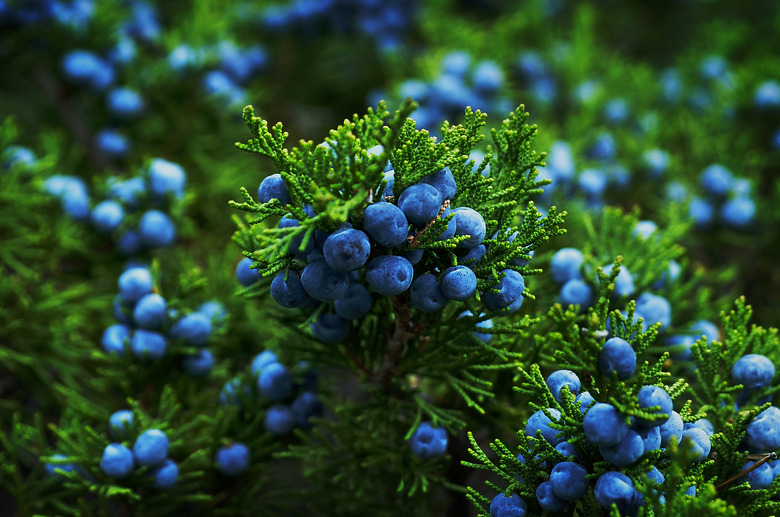Are Juniper Berries Poisonous To Dogs?
For centuries, wild juniper berries have been used as medicine, flavoring for meat, and even for making gin. Some dogs have a taste for wild juniper berries and will nibble the ripe berries from a low-hanging branch. Although wild juniper isn't toxic to dogs in small amounts, mildly toxic ingredients can lead to digestive upset or kidney failure when eaten to excess.
Types of juniper trees
Types of juniper trees
There are approximately 40 species of juniper that grow throughout the United States. The bushy tree with blue-green needles can range in size from a small juniper shrub growing along the ground to 25 feet tall in some varieties. The berries protect a woody seed inside. The berries only grow on female trees — the flowering trees that might wreak havoc on your winter allergies are the male trees — and they can take up to two years to mature, turning from green to blue.
Juniper berries aren't listed as toxic on the American Society for the Prevention of Cruelty to Animals' toxic plant list. However, although the berries have beneficial qualities, your dog could experience diarrhea or vomiting if he eats too many. Ornamental varieties have higher concentrations of these mild toxins, while the wild varieties are generally considered safe for both dogs and humans.
The Juniperus sabina variety is the only highly toxic variety. It contains sabinene, which is highly irritating to the digestive tract, eyes, skin, and airways. This variety is not native to the U.S. and hails from Spain, but many types of ornamental junipers are selections of Juniperus sabina.
Why dogs eat juniper berries
Why dogs eat juniper berries
Some dogs like to chew on just about anything. If this is your type of dog, you'll need to be vigilant about what goes into her mouth. Other dogs like to forage, nibbling on various grasses and delicately picking berries with their lips with utmost care.
Your foraging dog is likely after the medicinal qualities she instinctively smells in the wild juniper berries more than its bitter taste and slightly gritty texture. Coyotes in the wild are regularly seen eating wild juniper berries.
One of the main components is terpinen-4-ol, which acts as an anti-parasitic, anti-inflammatory, antioxidant, and anti-bacterial. The natural chemical has powerful anti-cancer properties. The berries also contain the bioflavonoid amentoflavone, which has anti-viral and anti-cancer benefits.
Using juniper berries for health
Using juniper berries for health
Not only are juniper berries not poisonous but allowing your dog to nibble wild juniper berries can benefit his health. You can also find juniper berry supplements online to give your pet the benefit of juniper berries. Juniper is believed to benefit pets by lowering blood sugar levels and detoxifying the blood through the urinary tract. Using it topically is also good for the skin as an astringent and to treat minor bruising.
You can make your own juniper berry tea at home by boiling 1 cup of water, turning off the heat, and adding a small handful of berries. Allow the concoction to steep for eight minutes. Small dogs should only get 1/2 tablespoon of the tea per day, while large dogs over 50 pounds can safely drink up to 1/3 cup.
Juniper berry dangers
Juniper berry dangers
Avoid using juniper tea for more than four weeks at a time. The best policy is to use it as needed or as advised by your naturopathic vet and then stop the tea as conditions resolve. Consult your veterinarian if your pet shows any nausea, vomiting, or diarrhea after consuming juniper berry tea or juniper berries.
As wild juniper berries have only minimal toxicity, it's usually OK for your dog to nibble a few here or there as desired. However, if your dog has kidney disease, the substances contained in the berries could bring more harm than good. The terpineol in the berry stimulates the kidneys to make more urine, which can be unhealthy for dogs with compromised kidney function.
References
- Gardening Know How: Are All Juniper Berries Edible – Is It Safe To Eat Juniper Berries
- American Society for the Prevention of Cruelty to Animals: Toxic and Non-Toxic Plant List – Dogs
- U.S. Food & Drug Administration: Juniperus Sabina
- PubChem: Sabinene (Compound)
- PubChem: Terpinen-4-ol
- PubChem: Amentoflavone
- Oregon State University: Juniperus Sabina
- Your Old Dog: Juniper Berries for Dogs & How to Safely Use


